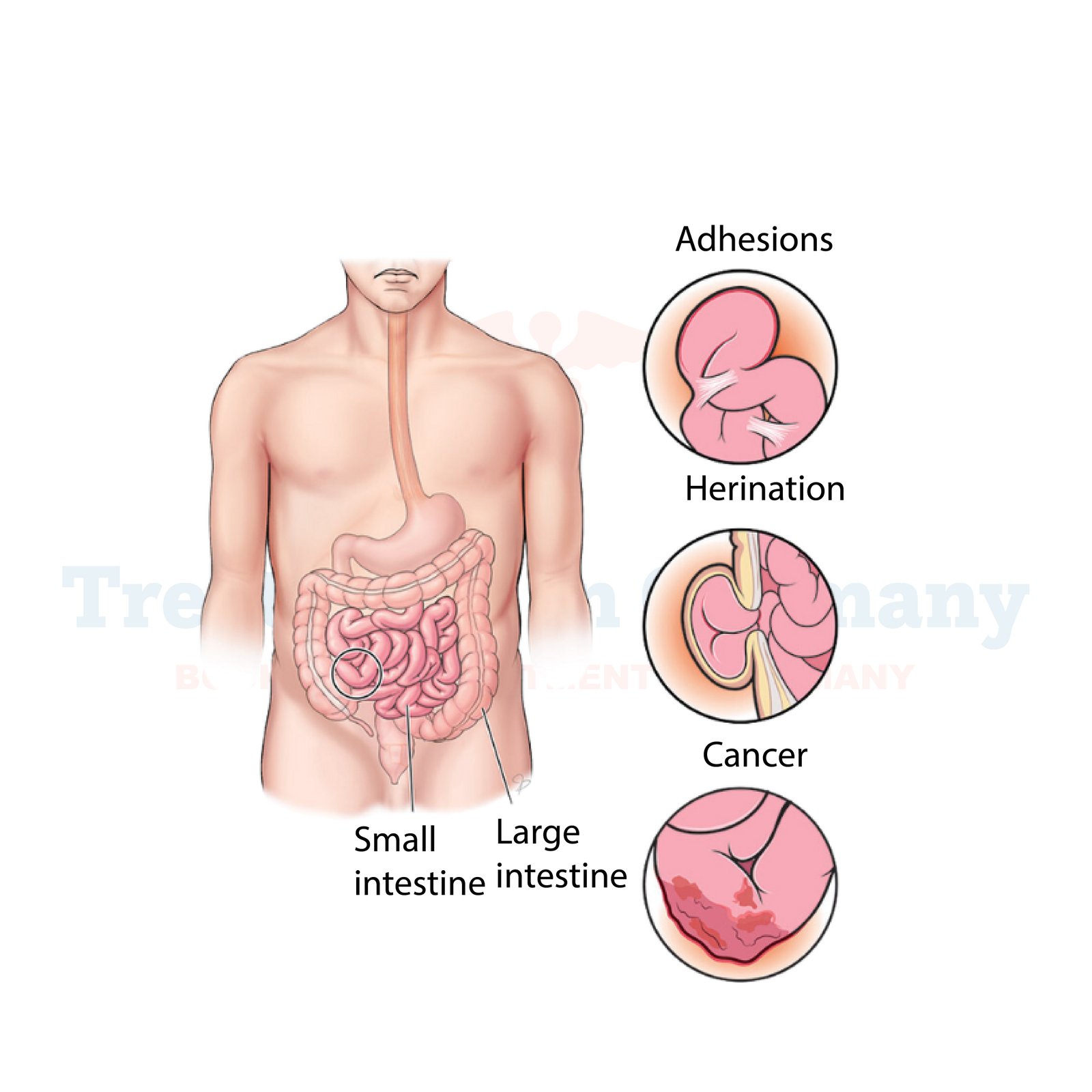What is Small Bowel Obstruction?
Small bowel obstruction (SBO) occurs when there is a blockage in the small intestine, which prevents food, fluids, and gas from passing through the digestive tract.
This condition can result from various causes, including adhesions (scar tissue from previous surgeries), hernias, tumors, or inflammatory diseases like Crohn's disease.
The blockage can lead to a buildup of pressure, causing discomfort and potentially serious complications if left untreated.
Side Effects of Small Bowel Obstruction
The side effects of small bowel obstruction can vary in severity but generally include:
- Abdominal Pain: Cramping or sharp pain is common as the intestine tries to push contents past the blockage.
- Bloating: A feeling of fullness or swelling in the abdomen.
- Nausea and Vomiting: The body’s response to the blockage can include frequent vomiting, which may contain bile.
- Constipation or Inability to Pass Gas: A complete obstruction can prevent bowel movements and the passage of gas.
- Dehydration: Due to vomiting and lack of fluid absorption, dehydration can occur, leading to symptoms like dry mouth, dizziness, and reduced urine output.
If the obstruction is severe or prolonged, it can lead to more serious complications, such as bowel necrosis (tissue death) or perforation (a tear in the intestinal wall), which requires immediate medical attention.
How is Small Bowel Obstruction Diagnosed?
Diagnosing small bowel obstruction involves several steps:
- Medical History and Physical Examination: Your doctor will review your symptoms, medical history, and perform a physical examination, paying close attention to abdominal tenderness or distension.
- Imaging Tests: Common imaging techniques include:
- X-rays: Can help identify gas patterns and potential blockages.
- CT Scans: Provide detailed cross-sectional images of the abdomen to pinpoint the location and cause of the obstruction.
- Ultrasound: Often used in specific cases, particularly in children or pregnant women.
- Blood Tests: To check for signs of infection, dehydration, and electrolyte imbalances.
Potential Treatment of Small Bowel Obstruction
Treatment for small bowel obstruction depends on the severity and underlying cause:
- Conservative Management: For partial obstructions or less severe cases, your doctor may recommend fasting (not eating or drinking) to give your bowel a chance to rest and clear the blockage. IV fluids and electrolytes may be administered to prevent dehydration and maintain nutrition.
- Medications: Pain relief and anti-nausea medications can help manage symptoms.
- Surgical Intervention: In cases where the obstruction is complete, persistent, or caused by something like a hernia or tumor, surgery may be necessary. The procedure involves removing the blockage or repairing the underlying issue.
- Post-Surgery Care: After surgery, you may need to follow a special diet and gradually reintroduce foods to avoid future obstructions. Regular follow-up with your healthcare provider will ensure proper recovery.
👉 Contact us for further information and receive a complimentary consultation.


.webp)
 (1).webp)

.webp)
 (1).webp)


.webp)
 (1).webp)

.webp)
 (1).webp)
